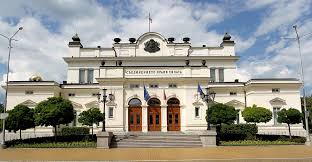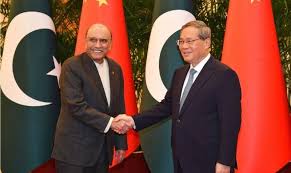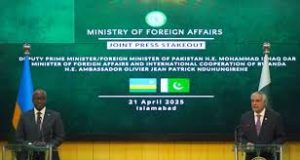Sunday special sitting of Bulgaria’s Parliament fails for lack of quorum

Bulgaria: A special sitting of Bulgaria’s Parliament called for June 2 – a Sunday – failed because there were too few MPs for a quorum.
Calling a special sitting for a Sunday is a highly unusual move for Bulgaria’s legislature. Customarily, special sittings requested at the end of a week are held on Mondays or Tuesdays.

The abortive special sitting also was scheduled for just a week until Bulgaria goes to the polling stations, on June 9, in early National Assembly and regular European Parliament elections.
Bulgaria’s constitution was amended last year to allow a Parliament to continue in office until the members of a new Parliament are sworn in. Previously, Parliament was dissolved after three failed attempts to form a government and once early elections were called.
The special sitting was requested by the We Continue the Change-Democratic Bulgaria coalition, the current Parliament’s second-largest group.
At 3pm, the scheduled starting time, 67 out of 240 MPs registered as present: 56 from WCC-DB, nine from Parliament’s smallest group, ITN, one independent and Acting Speaker Rositsa Kirova (GERB-UDF).
A second attempt 15 minutes later saw 69 MPs register as present. Without announcing a third attempt – as is customary – Kirova stood up and, smiling, said: “I wish you all a good day”.
There had been two items on the Order Paper.
One was to oblige the Minister of Health to take steps to conclude a collective labour agreement in the health care sector and to impose sanctions for non-payment of the remuneration of medical specialists provided for in it.
The second was a hearing of caretaker Prime Minister and Foreign Minister Dimitar Glavchev on leaked correspondence between him and Bulgaria’s ambassador to the United Nations, Lachezara Stoeva, showing him calling on her to abstain on a resolution to declare a July 11 the International Day of Reflection and Commemoration of the 1995 Genocide in Srebrenica, in which at least 8372 people were killed, thousands displaced and whole communities destroyed.
According to the documentation, posted online, Glavchev wanted Bulgaria to abstain because of the “tense situation” regarding the resolution.
Stoeva, who pointed out that Bulgaria was a co-sponsor of the resolution, voted in favour of it on behalf of her country.
The documentation showed Stoeva responding to Glavchev that moving from support to abstention would wreak serious damage to Bulgaria’s image in the international community.
Media reports alleged that Glavchev made the move after there were communications between GERB-UDF leader Boiko Borissov and Serbian President Aleksandar Vucic. Vucic was quoted as predicting that Bulgaria would change its position and abstain.
Responding to the controversy that followed the leaking of the documentation, Bulgaria’s government said in a May 30 statement: “Bulgaria has a consistent and unchanged position in recognising the victims of Srebrenica and has participated in all initiatives related to their commemoration”.
“The letter distributed to the Permanent Representation of Bulgaria to the UN in New York does not contain the final instructions to Ambassador Lachezara Stoeva,” the statement said.
“Documents leaked online are only part of the decision-making process and do not represent its entirety. This only creates ground for speculations, interpretations and manipulations on the subject.
“The leakage of official correspondence and its indiscriminate distribution in the public space can only be characterised as an element of a hybrid attack. The topic is being used politically amid an an election campaign and this harms the interests of Bulgaria,” the government said.
Ahead of the abortive special sitting, critical media reports said that GERB-UDF had chosen to schedule it at 3pm on June 2 to sabotage a WCC-DB election campaign event scheduled for 4pm. The four parliamentary groups that absented themselves from the failed sitting signalled that they did not intend interrupting their election campaigns to attend.





